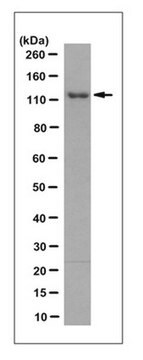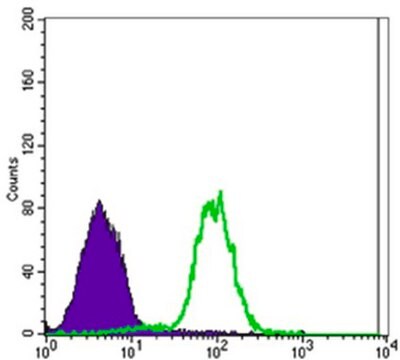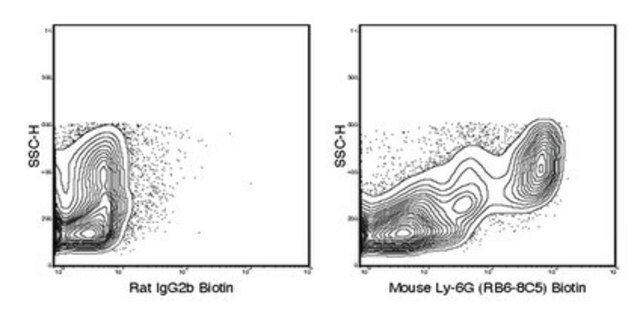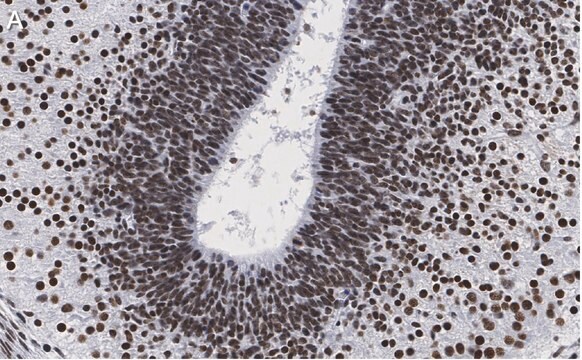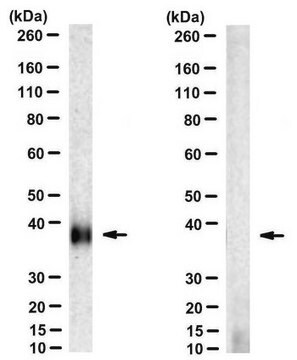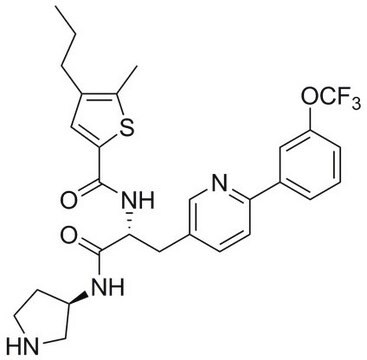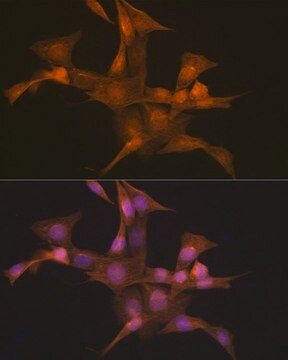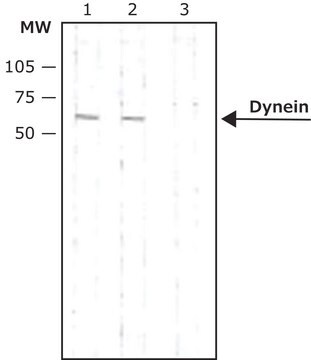MABN704
Anti-ASS1 Antibody, clone 2C10
clone 2C10, from mouse
Sinonimo/i:
Argininosuccinate synthase, Citrulline--aspartate ligase, ASS1
About This Item
Prodotti consigliati
Origine biologica
mouse
Livello qualitativo
Forma dell’anticorpo
purified antibody
Tipo di anticorpo
primary antibodies
Clone
2C10, monoclonal
Reattività contro le specie
mouse, human, rat, monkey
tecniche
immunohistochemistry: suitable
western blot: suitable
Isotipo
IgG1
N° accesso UniProt
Condizioni di spedizione
wet ice
modifica post-traduzionali bersaglio
unmodified
Informazioni sul gene
human ... ASS1(445)
Descrizione generale
Immunogeno
Applicazioni
Optimal working dilutions must be determined by end user.
Neuroscience
Neurodegenerative Diseases
Qualità
Western Blotting Analysis: A 1:500-2,000 dilution of this antibody detected ASS1 in A431, Raji, MOLT4, Jurkat, A549, NIH/3T3, PC-12 and Cos7 cell lysates.
Descrizione del bersaglio
Stato fisico
Stoccaggio e stabilità
Risultati analitici
A431, Raji, MOLT4, Jurkat, A549, NIH/3T3, PC-12 and Cos7 cell lysates
Esclusione di responsabilità
Non trovi il prodotto giusto?
Prova il nostro Motore di ricerca dei prodotti.
Codice della classe di stoccaggio
12 - Non Combustible Liquids
Classe di pericolosità dell'acqua (WGK)
WGK 2
Punto d’infiammabilità (°F)
Not applicable
Punto d’infiammabilità (°C)
Not applicable
Certificati d'analisi (COA)
Cerca il Certificati d'analisi (COA) digitando il numero di lotto/batch corrispondente. I numeri di lotto o di batch sono stampati sull'etichetta dei prodotti dopo la parola ‘Lotto’ o ‘Batch’.
Possiedi già questo prodotto?
I documenti relativi ai prodotti acquistati recentemente sono disponibili nell’Archivio dei documenti.
Il team dei nostri ricercatori vanta grande esperienza in tutte le aree della ricerca quali Life Science, scienza dei materiali, sintesi chimica, cromatografia, discipline analitiche, ecc..
Contatta l'Assistenza Tecnica.